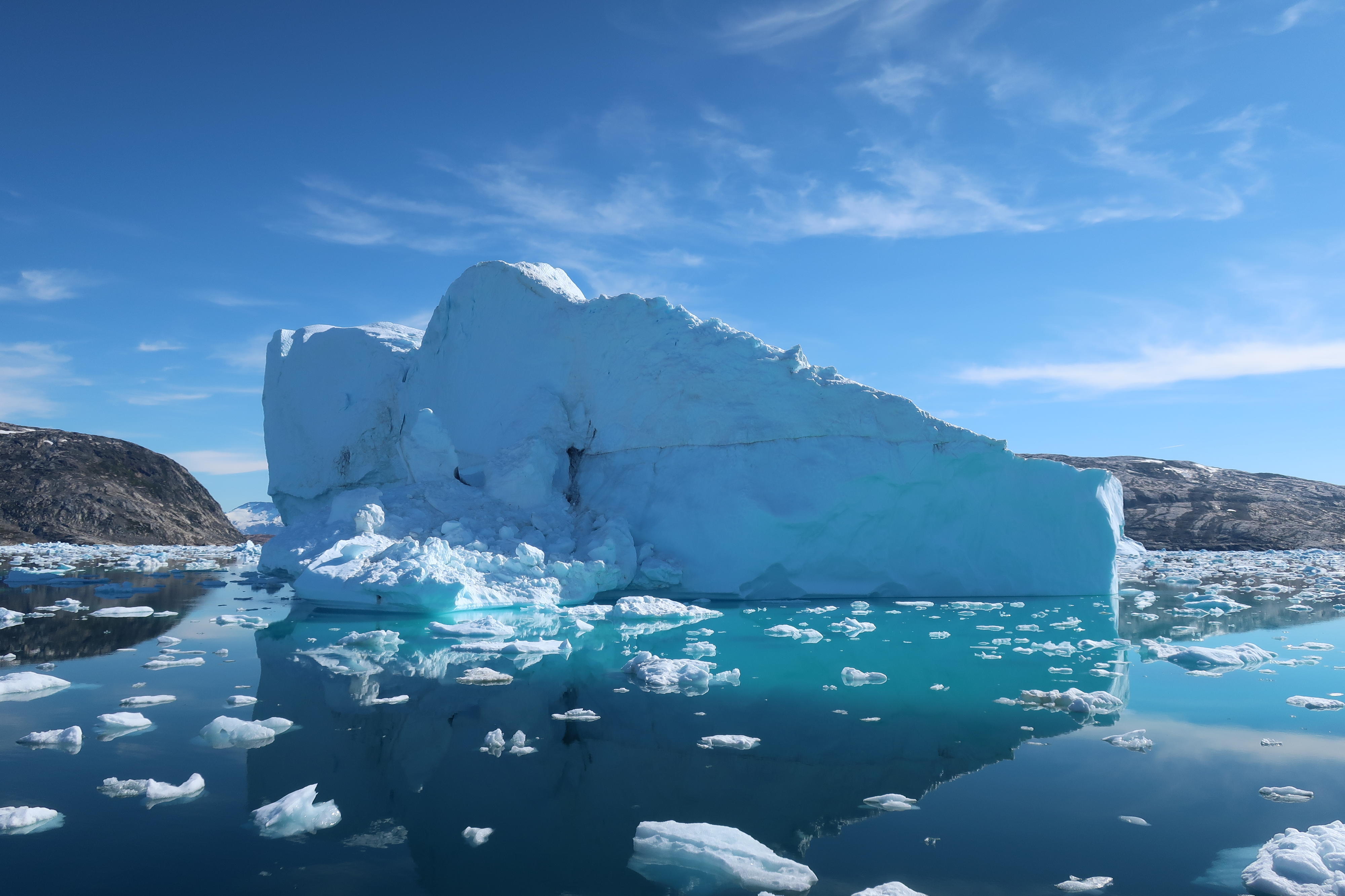Meeting climate goals would ‘halve’ sea level rise from melting ice, study says
Further sea level rise poses a large threat to small island nations and coastal populations

Limiting global heating to 1.5C above pre-industrial levels could halve the amount of sea level rise from melting land ice this century, when compared to a scenario based on current climate pledges, a study finds.
Under the Paris Agreement, countries agreed to restrict global heating to “well below” 2C by the end of the century, with an aspiration of keeping temperatures at 1.5C. However, current pledges put forward by countries would see the world reach around 3C of warming by 2100.
The new research, published in the journal Nature, examines the extent to which the world’s glaciers and ice sheets will contribute to sea level rise by 2100 under different levels of global heating.
It finds that, under current climate pledges, the melting of land ice could cause sea levels to increase by a median of 25cm by the end of the century. However, if efforts are made to keep global temperature rise to 1.5C, this figure could be reduced to 13cm.
The contribution of melting ice to rising seas could be much higher if Antarctica follows a “pessimistic” pathway in the future, the research adds.
The findings come as a second study, also published in Nature, warns that sea level rise from Antarctica could increase substantially if global temperatures exceed 3C, with an “abrupt jump” in the pace of Antarctic ice loss expected around 2060.
Dr Tamsin Edwards, a climate scientist at King’s College London and lead author of the first research paper, told a press briefing: “We know that global sea levels are going to continue to rise, but we could halve the contribution from ice melt if we limit warming to 1.5C above pre-industrial levels, relative to current pledges.
“That means that coastal flooding will still increase but less severely if we manage to limit warming to 1.5C.”
Global sea levels have risen by a total of around 18 to 20cm since 1900, raising the risk of coastal flooding and the loss of low-lying small islands, among other impacts.
Melting land ice – glaciers and the Greenland and Antarctic ice sheets – currently account for around half of all sea level rises. The other major driver is “thermal expansion”, a term for how seawater expands as it heats up.
The research makes use of high-resolution models and a wide range possible scenarios for how humans will heat the planet over the coming decades.
It finds that increasing global temperatures will continue to drive the loss of glaciers, slow-moving rivers of ice that supply drinking water for millions.
It also finds that increasing heat will continue to have a large impact on the Greenland ice sheet, a mass of frozen freshwater around three times the size of Texas that sits on the island.
The study says that limiting global heating to 1.5C could reduce the amount of mass lost from Greenland’s ice sheet by 70 per cent by the end of the century, when compared to a scenario based on current climate pledges.
The researchers also find that global heating will continue to affect the Antarctic ice sheet – the single largest mass of ice on Earth.
However, in the research paper, the authors say their findings come up with “no clear” picture of how Antarctica is likely to respond to rising emissions.
The reason for this is that the factors affecting Antarctica as the world heats up are likely to be complex and are not yet fully understood, the scientists say. In addition, the different regions of the vast ice sheet are expected to vary in their response to heating.
To account for this, the authors include a range of possible scenarios of Antarctic ice loss over the course of the 21st century.
“If we’re unlucky with the future of Antarctica and the predictions are at the upper end of the modelling uncertainty range ... that makes a big difference,” Dr Edwards said.
The results suggest that, under a pessimistic scenario, Antarctic ice loss could be five times higher – leading to 42cm of sea level rise from melting ice by the end of the century under current pledges and 30cm of sea level rise if global heating is limited to 1.5C.
The findings of the study are “consistent” with the sea level rise estimates put together by the Intergovernmental Panel on Climate Change (IPCC), the world’s leading authority on climate science, said Dr Ruth Mottram, a climate scientist at the Danish Meteorological Institute, who was not involved in the study.
“The big uncertainties in terms of sea level rise are still bound up with Antarctica, and that I think will continue,” she told The Independent.
“There are many processes that are still unclear or not particularly well modelled and the number of models used is rather limited.”
The research “represents a thorough and careful analysis of the uncertainties” surrounding the contribution of melting ice to future sea level rise, added Dr Jonathan Bamber, a glaciologist from the University of Bristol who was also not involved in the study.
“The study provides a detailed picture of the known uncertainties in model projections,” he told The Independent. “That is, the things we know we don’t know very well.
“What it is unable to do is to explore what is called ‘epistemic uncertainties’ – the processes we don’t know about or don’t understand.
“As a consequence, the study only captures part of the complete uncertainty in projecting sea level rise due to melting land ice.”
Subscribe to Independent Premium to bookmark this article
Want to bookmark your favourite articles and stories to read or reference later? Start your Independent Premium subscription today.

Join our commenting forum
Join thought-provoking conversations, follow other Independent readers and see their replies